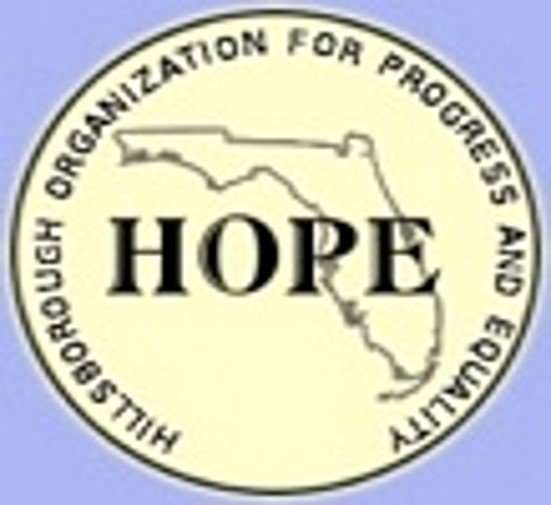Our Current Work
-
Mental Health
HOPE is working to get the county to develop a plan to develop create 500 additional units of Permanent Supportive Housing for people with serious mental illness. Affordable housing and case management is key to the success and stability of a person’s life.
We are also monitoring the establishment of the Recovery-Through-Work Clubhouse, which is a program that provides supportive employment and a positive social network for people with serious mental illness.
-

Criminal Justice
HOPE is working to get stakeholders to expand the Adult-Pre-Arrest Diversion Program to allow for driver’s license suspension offenses related to poverty. It is estimated 75% of driver’s license suspensions are related to someone’s inability to pay a fine or fee.
A diversion program would allow someone to be avoid a lifelong arrest record, which impacts housing and employment, while helping them get connected to services to get them back on the road safely.
-
Care for Creation
HOPE is working to get the City of Tampa to address flooding and water quality in vulnerable neighborhoods by revamping 5 stormwater drainage ponds using green infrastructure and to update the Stormwater Manual to require using green infrastructure for future ponds.
-
Affordable Housing
HOPE is monitoring the use of the HOPE Affordable Housing Fund, which we successfully got the County to establish in 2019. So far, $46 million has been allocating to the community through the HOPE Fund creating 1,100 more affordable housing units to date.
Past Victories
-
Affordable Housing: Got the County to pass an ordinance - the HOPE Affordable Housing Act - to establish an Affordable Housing Fund of at least $10 million a year in local public funds to create, rehab and preserve quality affordable housing. To date $46,000,000 of local funds have been allocated to the HOPE Affordable Housing Fund in the county budget.
Birth Certificates and IDs: Persuaded Hillsborough County to establish a Birth Certificates and ID Homeless Assistance program that enabled people to get housing and jobs to get off the street. Over 2,800 birth certificates and IDs were given to the homeless in the first four years.
Expedited Rent Assistance: Got Hillsborough County and the Clerk of Circuit Court to expedite rent assistance checks to landlords within 14 days, instead of several months, to maintain people in housing.
-
Hillsborough Civil Citation Program: Successfully encouraged the Chief Judge, State Attorney, Public Defender, Sherriff, and Police Chiefs to establish a permanent Hillsborough Youth Civil Citation policy that makes civil citations mandatory for children for all first-time misdemeanor offenses, thereby reducing the arrests of children and protecting their futures, increasing public safety, and saving taxpayer money.
Florida Civil Citation/Arrest Avoidance: Helped expand Florida Civil Citation law so children under 18 can receive a Civil Citation for up to 3 misdemeanor offenses instead of an arrest and requiring all Florida Counties to establish a program.
-
Fair Chance Hiring: Persuaded Tampa City Council to pass the Tampa Criminal History Screening Practices Ordinance that removed the question of past arrests to reduce discrimination and open doors to jobs for people with criminal records.
Training: Encouraged Hillsborough Community College to develop 9 Fast-Track Job Skill Certificate Programs and an outreach plan to connect the unemployed with training in job skills needed to obtain employment.
Jobs: Helped establish the Tampa Women/Minority Business Enterprise Ordinance.
-
Elder Care: Got the County to increase in-home services for seniors to live healthy and with dignity in their homes by allotting an additional $4.5 million to the Department of Aging Services over two years.
Dental Services: Persuaded the County Health Department and two federally qualified Health Centers to advocate for funding, develop and implement a plan to increase dental services for at least 15,000 people at 200% or below poverty, leading to an increase of 26 new dental chairs and the doubling of dental patients.
Behavioral Health: Got County and stakeholders to commit $1.6 million for the establishment and operation of a Recovery Through Work Clubhouse for people with severe mental illness to find stability, job training, employment, and peer support.
-
Bus Service: Encouraged HART to extend late-night bus service until 1:00 A.M. on 8 priority bus routes during the week and 2 extra hours on weekends, as well as construct bus shelters at identified locations.
-
Suspensions: Got the School District to establish the Alternative-to-out-of-School-Suspension (ATOSS) program, which supervises and protects the GPAs of thousands of suspended children each year. The ATOSS program in now called EPIC. Secured a commitment from the school district to not suspend children out of school for tardiness.
Reading: Positively impacted the reading success of thousands of low-income children in K - 3rd grade, and now Special Education, through implementation of a phonics-based reading program called Direct Instruction (DI). Secured $921,000 of state funding for Hillsborough County School District to implement DI in 10 schools and $7.25 million during the 2000 Legislative Session for use of DI in 7 Florida School Districts.
Minority Teachers: Got School District to hire Minority Teacher Recruiter to hire more Black and Hispanic teachers.
-
Rezoning: Reclaimed Dobyville, a historic African American neighborhood, by reversing 1950 Industrial Zoning to Residential and Mixed-Use Zoning, leading to the development of new and rehab of old housing.
Demolition: Successfully encouraged the Mayor of Tampa to demolish and clean up the abandoned Belmont Heights Lumber Company, a dangerous health, safety, and fire hazard in the community.
Sidewalks: Convinced the City of Tampa to construct a 1.2-mile sidewalk on N. 22nd Street in East Tampa at a cost of $65,000, leading to construction of many other sidewalks in the area.
Code Enforcement: Persuaded Tampa City Council to rehabilitate or demolish 200 condemned buildings and mow over 100 gravely overgrown empty lots to improve the safety of the neighborhood.
Infrastructure: Obtained traffic signs, street repair, drainage, and upgraded street lighting from Tampa’s Public Works.



